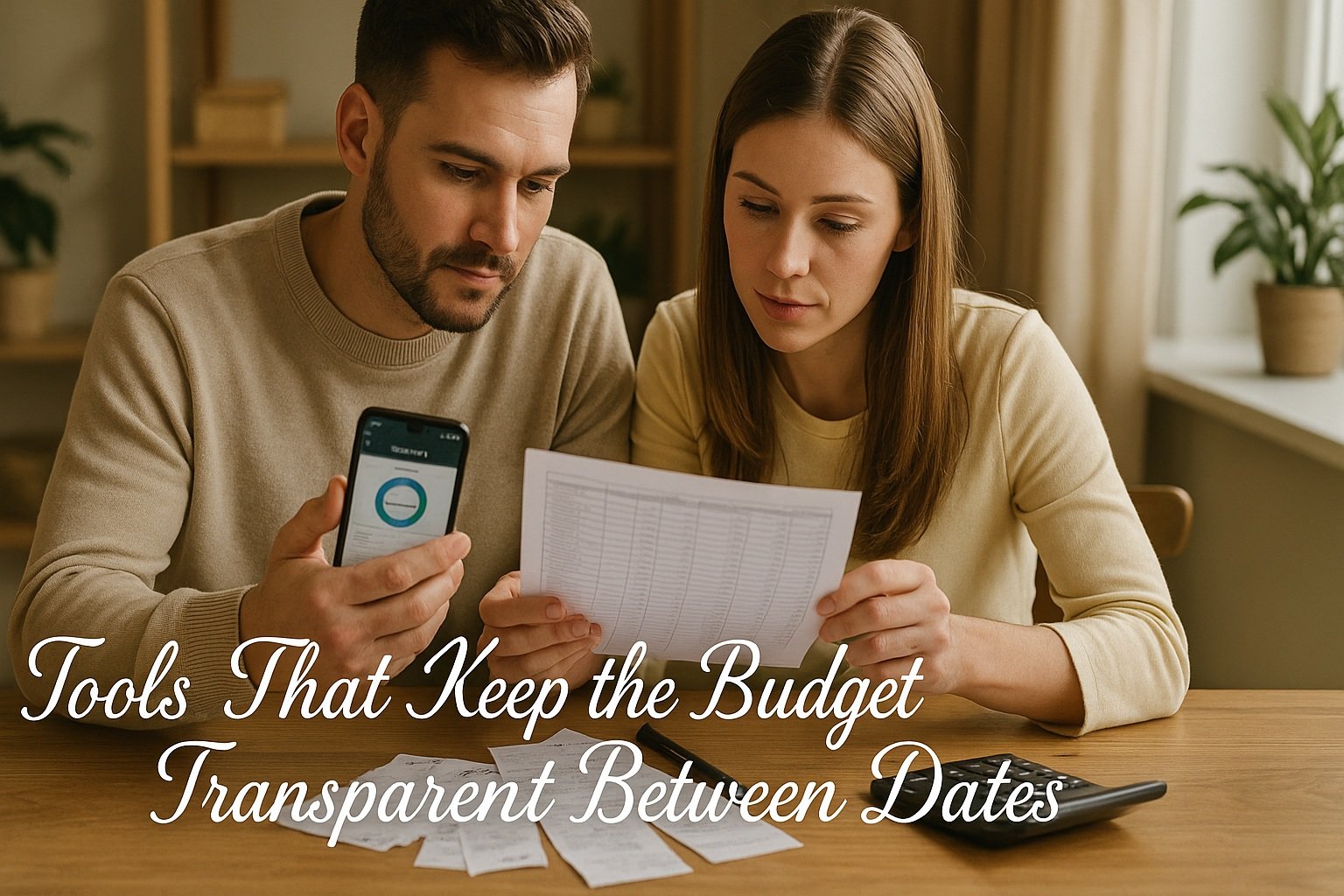
Couples “Money Date” Agenda: Keeping the Budget Transparent
Couples’ “Money Date” Agenda: 7 Transparent Budgeting Tips That Turn Awkward Talks into Teamwork
A money date is a relaxed but purposeful sit‑down in which partners open the books, swap honest feelings, and agree on the next few moves for their shared cash life. Think of it as a relationship checkup plus a mini finance class rolled into one friendly chat. By the end of this guide, you will know exactly how to run that conversation, why it works so well, and which budgeting tips make the session feel positive rather than preachy. We will keep every idea practical, show you how to fit the talk into real life, and sprinkle in budgeting tips often enough for you to remember them long after you finish reading.
What Exactly Is a “Money Date”?

A money date is a recurring calendar event where two partners carve out dedicated time to walk through their earnings, bills, goals, and feelings. The session has three trademarks: a fixed length, a written agenda, and total transparency. Those markers matter because they lower anxiety and create a safe, predictable space for candid conversation. Regular exposure to these budgeting tips helps both people hear hard facts without slipping into blame. The sheer ritual of seeing the numbers together, every single month, turns money management into a shared project instead of a personal secret.
Why Regularity Beats “Once-in-a-While” Talks
One‑off budget chats feel like ambushes. Predictable money dates feel like dental cleanings: routine, brief, and pain preventing. You do the same checklist, in the same order, and you keep notes to measure improvement. Couples who follow these budgeting tips say surprises fade fast. Bills no longer appear “out of nowhere” because the next big expense has already been flagged and parked in the plan. Trust grows in step with the habit; each partner sees proof that promises translate into action. When you measure every month, it becomes easy to celebrate progress and detect problems early.
Pre-Date Prep: Setting the Stage for Success
-
Pick the right time and place
Friday night after a long workweek is risky because everyone is tired. Sunday morning coffee or a midweek lunch break may be calmer. Good locations are quiet, free of children, and free of phone alerts. These little environmental budgeting tips turn down stress before it starts. -
Agree on one or two focus topics
A money date is not a marathon. Decide in advance if this meeting revolves around saving for a vacation, trimming grocery costs, or reviewing credit‑card rewards. Limiting scope is one of the simplest budgeting tips for staying under an hour. -
Bring the numbers
Open your banking app, print last month’s statement, or pull a fresh export from your spreadsheet. Concrete data stops arguments about memory. -
Set a compassionate tone
Use I‑statements, recognize each other’s wins, and ban loaded phrases like “You always.” These empathy‑driven budgeting tips keep emotion from hijacking logic.
The 7‑Point Money‑Date Agenda
Below you will find seven timed mini‑segments. Sprinkle the phrase budgeting tips throughout your conversation so the toolkit becomes second nature.
Values & Vision Check‑In
Spend five minutes asking, “Are we still chasing the right goals?” Maybe you want to retire early, save for a home, or pay off student loans. Repeating your big picture anchors your day‑to‑day numbers to a purpose. This positive framing is one of the most effective budgeting tips for avoiding nit‑picky fights.
Snapshot: Income, Expenses & Cash‑Flow Trends
Pull up last month’s payday total, total outgoing bills, and final cash position. Plot the numbers quickly on paper or a phone app. These diagnostic budgeting tips turn the date into a game of “spot the pattern” rather than an interrogation.
Progress on Short‑Term Goals
Check the emergency fund balance or the latest debt payoff amount. Each visible inch of progress injects motivation. Micro‑celebrations are underrated budgeting tips for keeping momentum high.
Upcoming Irregular Expenses
Birthdays, car repairs, subscription renewals, and holiday gifts are notorious budget busters. Call them out now. Park them in a sinking‑fund line so the cash is waiting. This proactive step is among the smartest budgeting tips for shock prevention.
Adjust & Allocate
If dining out overshot its target by thirty percent, decide how to compensate. Maybe you trim entertainment or reassign freelance income. Dynamic reallocations are flexible budgeting tips that keep the plan realistic rather than rigid.
Address Red‑Flag Feelings
If someone feels judged or unheard, pause the math. Use active listening, reflect emotions, and restart only when both voices feel valued. Emotional housekeeping is a critical, often ignored layer of budgeting tips.
Confirm Action Items & Next Date
Write down tasks: automate a transfer, cancel an unused membership, or call the internet provider for a discount. Then lock the next money date on the calendar. Closing with clear assignments and a future appointment is a final batch of budgeting tips that stop drift.
Tools That Keep the Budget Transparent Between Dates

You need visibility every day, not just on meeting day. Shared Google Sheets let both partners tweak categories on the fly. YNAB (You Need A Budget) is a rule‑based app great for envelope-style thinking. Splitwise keeps roommate‑style math tidy for couples who are not yet fully merged. Honeydue pairs joint account insights with comment threads under each expense. The simplest budgeting tips here are to pick one tool you both like, make sure it syncs automatically, and agree to review it at least weekly.
Troubleshooting: Turning Tense Talks into Teamwork
Even the best budgeting tips cannot sidestep every emotional landmine. When tempers flare, break the pattern fast. Stand up, refill water, or do a three‑breath reset. Replace “You spent too much” with “I noticed groceries ran high, and I’m anxious about our savings goal.” This swap turns a blame sentence into an observation plus feeling. Another rescue trick uses the phrase “Same team.” Whisper it every time sarcasm creeps in. These deceptively small budgeting tips transform a looming fight into a joint puzzle.
Sample 30‑Minute “Money‑Date” Script
| Minute | Topic | Key Questions | Quick Outcome |
|---|---|---|---|
| 0‑5 | Warm-up & wins | What felt good about our spending this month? | Positive mood |
| 6‑15 | Numbers review | Any categories over or under? | Agree on one or two tweaks |
| 16‑25 | Upcoming costs | Which big expenses are due before our next date? | Assign who pays and how |
| 26‑30 | Wrap & schedule | Next date, same time next month? | Calendar invite sent |
Caption: One clear timeline shows how budgeting tips fit neatly into a half‑hour chat.
FAQ
| Question | Short Answer |
|---|---|
| What should couples discuss on a money date? | Start with a budget snapshot, progress on goals, and upcoming expenses, then add one deeper topic each session. |
| How often should you have a money date? | Most experts suggest monthly; brand‑new cohabiters or aggressive savers often like biweekly chats. |
| How do we plan a budget together without conflict? | Use a shared app for real‑time visibility, agree on a fair expense split, and cap meetings at sixty minutes. |
| How can we make money talks feel less awkward? | Treat the meeting like an actual date, add food, and set ground rules that ban blame and encourage listening. |
| Which apps help couples budget transparently? | YNAB, Mint, Splitwise, Honeydue, and a shared Google Sheet are popular low‑cost options that sync across devices. |




